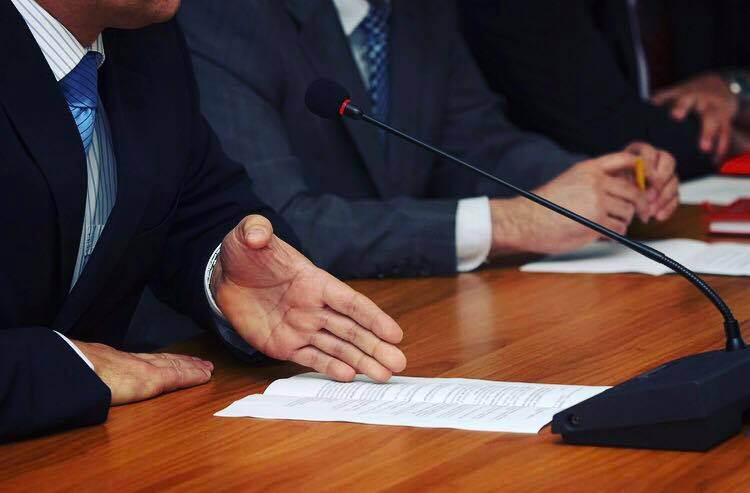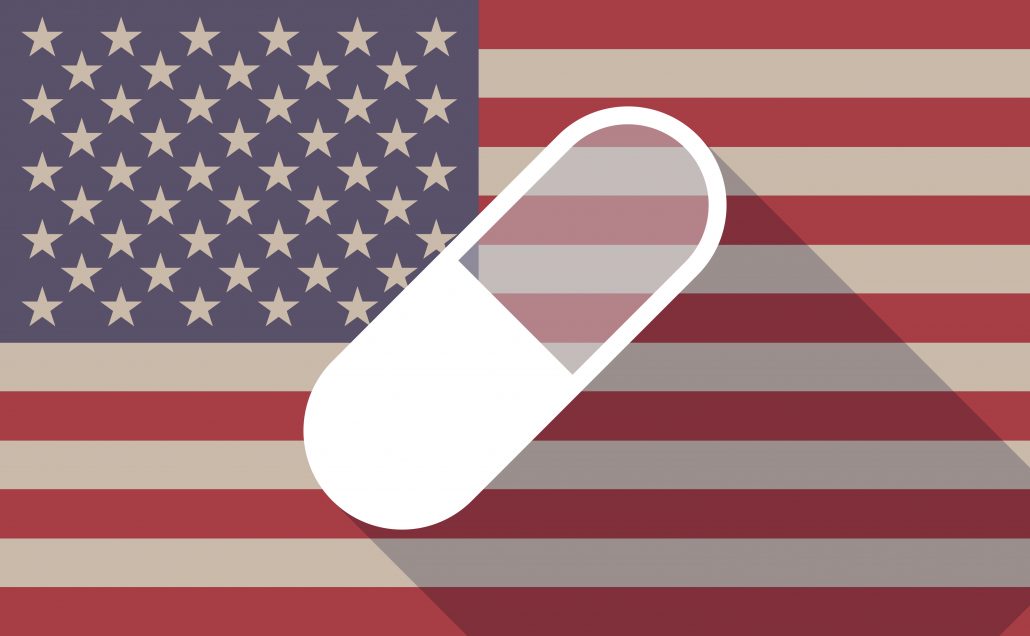Opioid Commission Demands Insurance Companies Cover Treatment

If that headline seems kind of confusing, don’t worry, it should. Technically insurance companies are already required by law to provide the same coverage for substance abuse and mental health that they do for other health conditions… and therein lies the issue.
Back in August the White House Opioid Commission, established by President Trump and led by New Jersey Governor Chris Christie, made several recommendations to the current administration about how to address the current drug crisis as it damages communities across the country. One of those recommendations was to declare a national emergency, while others had to do with options for prevention and education.
In the aftermath of ex-DEA agent Joe Rannazzisi’s eye-opening interview exposing the shady connections between Congress and Big Pharma companies, many have been looking closely at how government officials and multi-billion dollar empires helped create the opioid epidemic. Now the White House’s Opioid Commission is putting a focus on how health insurance companies and the flaws in their policies have contributed to the intensifying addiction crisis.
So with the opioid commission saying they will call-out insurers and make demands on coverage for addiction treatment, will more people have access to help?
Restricted Addiction Treatment
One of the biggest issues the opioid commission seems to have with insurance companies is that frequently their policies only cover one type of addiction treatment and not others. It seems insurance companies are convinced that with a complex and extremely personal issue like substance use disorder or mental health conditions, there is a one-size-fits-all answer. Sadly, most advocates can tell you this isn’t the case.
Something else especially frustrating is that laws already exist to prevent insurers from treating addiction treatment different than any other health issue. Chris Christie himself said,
“Why are we still not seeing addiction services covered, and mental health services covered as broadly as every other type of disease?”
“And what do we need to do to make sure that the law is enforced and followed?”
The Mental Health Parity and Addiction Equity Act of 2008 requires health insurers to treat mental health and substance abuse disorders the same as any other disease. It means they should provide health care coverage for these conditions without additional limits, co-pays or deductibles. If companies add on additional requirements, it creates even more barriers between the suffering individual and treatment. Sadly, not every insurance company thinks it has to play by the rules.
A task force convened by President Barack Obama last year reported that numerous insurance companies still place a number of limits on addiction coverage, like more strict pre-authorization requirements. The insurance companies claim that their policies are only part of a complex problem, insisting that the issue also has to do with shortages of doctors and poor medical training from healthcare providers in the field of addiction treatment.
However, the simple fact that insurance companies are still trying to push back against supporting addiction treatment has the opioid commission ready to address the inconsistencies that are making it even harder for people who need help to get the help they deserve.
Holding Insurance Companies Accountable
The opioid commission is not holding back when it comes to trying to make insurance companies contribute to solutions since they helped contribute to the problem. The New Jersey Governor warned health insurance companies to be prepared for a final report that will “place new demands” on health insurance policies.
Christie and the opioid commission seem to be playing offense, saying Big Pharma drug companies and health insurers profit while allowing an epidemic of addiction to continue, but these new demands will hopefully change all that. Christie added,
“I’m a capitalist. I want everybody to make profits. I think it’s great. But we can’t any longer go about addressing this problem this way,”
“I hope you’re prepared to accept the challenge, because we know if it hasn’t gotten into your own house yet, it could, and then all the sudden your perspective on this problem could become markedly different.”
Not only is there more pressure on insurance companies when it comes to treatment options in their policies, but with how they handle medications in the first place.
Health insurance providers are also under a greater deal of scrutiny for policies that sometimes favor powerful and addictive painkillers over less addictive, and more expensive, variations. So not only are they limiting the options when it comes to getting treatment for substance abuse, but they are limiting coverage of medications to more addictive drugs to save money.
Insurance providers did show up to testify at the commission to help create a more comprehensive view of the issue. Involved were executives from some of the nation’s largest insurance companies:
- Aetna
- Anthem
- Blue Cross Blue Shield
- Cigna
- Harvard Pilgrim Health Care
- Kaiser Permanente
- UnitedHealth Group
- UPMC Health Plan
Representative Elijah Cummings, the ranking member of the House Oversight Committee, also has questions for many of those same companies. Some of these inquiries stem from a report by The New York Times last month stating insurance companies “erected more hurdles to approving addiction treatments than for the addictive substances themselves.”
Cummings wrote letters to seven of the companies which state,
“This is not a hypothetical problem. The over-prescription of opioids leads to addiction and death.”
The White House’s opioid commission has also spoken with leaders in the pharmaceutical industry. All this shows that the opioid commission is not only worried about exploring our options for fixing the issue but also in examining all the elements that helped cause the opioid epidemic in America. Christie says the final report to President Trump will include sweeping recommendations but will also be “extraordinarily instructive in terms of how we got here, which is an important thing for this commission to acknowledge.”
The commission will hold its last meeting November 1st before delivering its final report to the President. Only time will tell what demands this report plans to place on insurance companies to provide more coverage for addiction treatment services.
Will Insurance Companies Change?
The big question becomes how will this impact the services offered by insurance companies. Will the opioid commission’s suggestions help shape new policies, or will some insurance companies continue to ignore the parity laws put in place to make sure they do not discriminate against the treatment of substance abuse?
Will these changes allow for the coverage of different innovative and holistic treatment options, or will the change only support programs that depend on maintenance drugs like methadone or Suboxone?
Hopefully, the new demands being put on insurance companies will help to support mental health and substance abuse parity. When it comes to addressing addiction in America, we need every resource we can get in order to move forward with overcoming the opioid epidemic. With more officials taking a closer look at every aspect of the issue, perhaps we can get a more effective strategy for addressing the problem.


